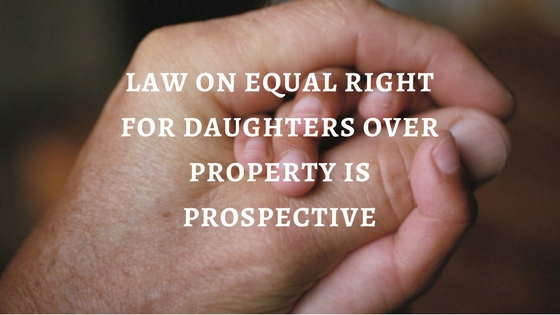Aapka Consultant Judgment Series- In this series, we are providing case analysis of Landmark Judgments of Hon’ble Supreme Court of India.
Prakash & Ors. v. Phulavati & Ors.
2015 (11) SCALE 643
JUDGES: Anil R. Dave and Adarsh Kumar Goel
Date of Decision: 16-10-2015
FACTS:-
This appeal has been filed against the judgment passed by the High Court which ruled that an amendment would be applicable to the pending proceedings even if such an amendment was prospective in its operation. According to the case of the plaintiff, the suit properties were acquired by her late father by inheritance from his adoptive mother. After the death of her father, she acquired the share in the property as claimed. The suit was contested mainly with the plea that the plaintiff could claim share only in the self-acquired property of her deceased father and not in the entire property. During pendency of the suit, the plaintiff amended the plaint so as to claim share as per the Hindu Succession (Amendment) Act of 2005. Trial Court partly decreed the suit.
ISSUE:-
Whether the plaintiff is entitled to a share in terms of Section 6 of the Hindu Succession Act as amended by Act No. 39 of 2005?
JUDGMENT:-
The Hon’ble Supreme Court has concluded that the rights under the Hindu Succession (Amendment) Act, 2005 are applicable to living daughters of living coparceners as on 9th September, 2005, when this act came into force, irrespective of when such daughters are born. Disposition or alienation including partitions which may have taken place before the bill was introduced i.e. on 20th December, 2004 as per law applicable prior to the said date will remain unaffected. The Court stated that the bare reading of the statute (Amendment Act) itself suggests that the daughter has a right in the coparcenary property on and from the commencement of the amendment act. An amendment of a substantive provision is always prospective unless either expressly or by necessary intendment it is retrospective. Even a social legislation cannot be given retrospective effect unless so provided for or so intended by the legislature. In the instant matter, there is neither any express provision for giving retrospective effect to amended provision nor necessary intendment to that effect.
The Hindu Succession (Amendment) Act of 2005 gave equal rights to the daughters in coparcenary properties by removing the discrimination that has been provided by the earlier enactment i.e. The Hindu Succession Act, 1956 against Hindu women on rights over ancestral properties. Also the Court is unable to find any reason to hold that the birth of the daughter after the amendment act was a necessary condition for its applicability. All that is required is that the daughter and her father both should be alive on the date of amendment.
HELD:-
The Court held that the provisions of Hindu Succession (Amendment) Act, 2005 are applicable “prospectively” i.e. from 9th September, 2005 when the Act came into force and not with “retrospective” effect as held by some High Courts in the country.
If you are looking to buy or sell a property you can take a look at Property Management Services in Miami Shores, Florida and get some of the best properties for a good cost.
To Get Legal Opinion from Advocates/ Legal Experts, Please click here
To Get Legal Opinion from Retired Hon’ble Judges, Please click here












